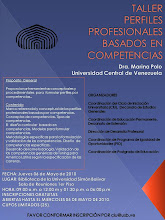
Development of Arithmetical Competencies in Chinese and American Children: Influence of Age, Language, and Schooling
David C. Geary and C. Christine Bow-Thomas
University of Missouri at Columbia
Fan Liu
China Central Institute for Educational Science
Robert S. Siegler
Carnegie Mellon University
The arithmetical competencies of more than 200 Chinese or American kindergarten, first-, second-, or third-grade children were assessed toward the beginning and toward the end of the U.S. school year. All children were administered a paper-and-pencil test of addition skills, a digit span measure, and an addition strategy assess- ment. The addition strategy assessment provided information on the types of strategies the children used to solve simple addition problems as well as information on the speed and accuracy of their strategy use. Information on the number of math instruction periods across times of measurement was also obtained for each of the first-, second-, and third-grade children. The pattern of arithmetical development across the academic year and across the Chinese and Ameri- can children suggests that a mix of cultural and maturational factors influence the emergence of early arithmetical competencies and that the Chinese advantage in early mathematical develop- ment is related to a combination of language- and school-related factors.

Descargar

.png)

0 comentarios:
Publicar un comentario